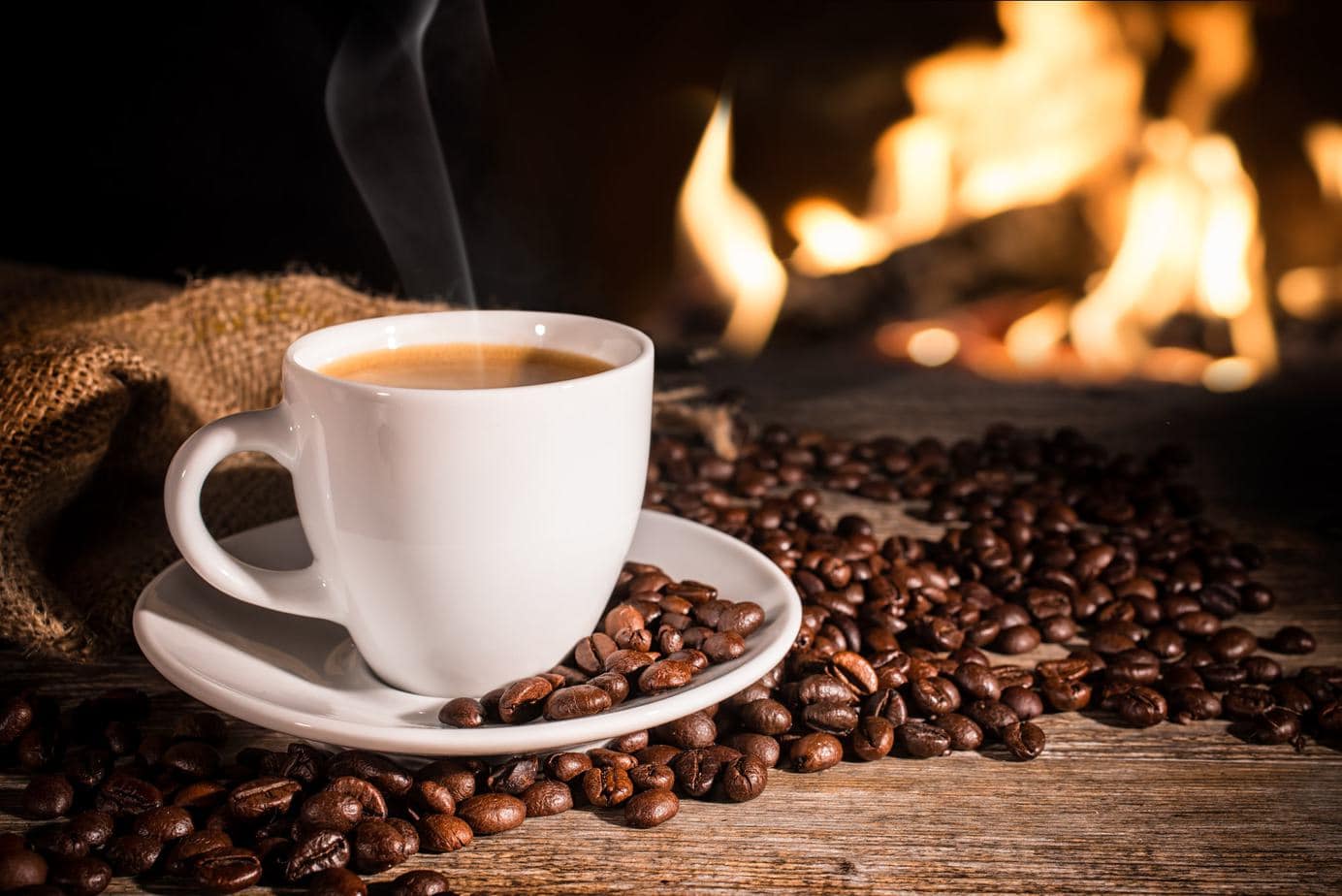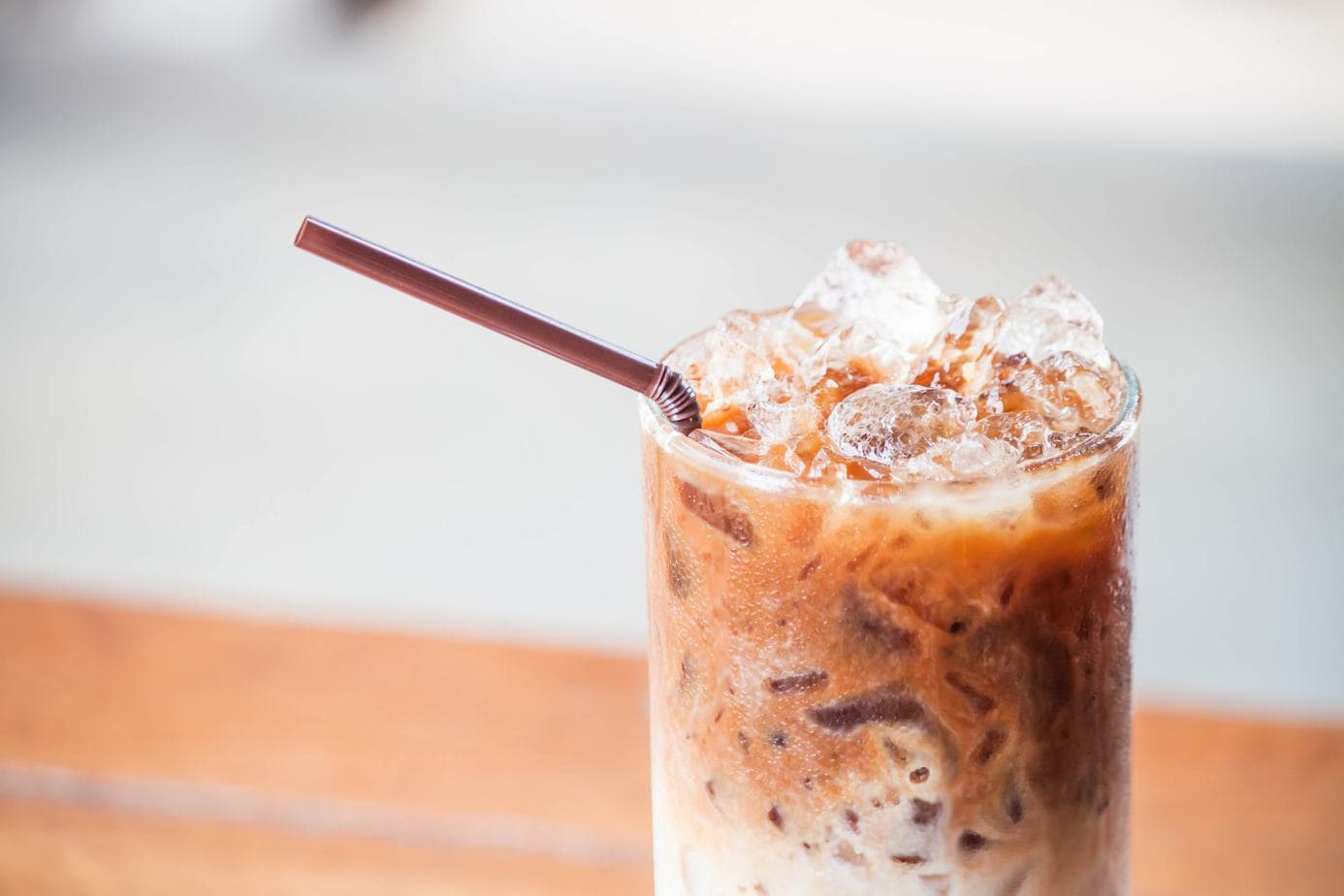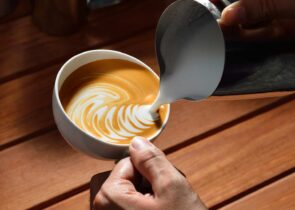There’s something magically soothing about a warm cup of coffee on a brisk fall morning. But, of course, there’s also the powerful punch that accompanies a large iced coffee on a hot summer day. If you’re one of the millions of coffee drinkers around the world, you’ve probably asked yourself “hot or cold” at least once in your life.
Cold coffee vs. hot coffee isn’t just a matter of altering the temperature of your favorite drink; it can involve far more. For example, if you ever let hot coffee cool off too much before drinking it, you know that it tastes nothing like a cold brew.
Why is that? Read on to learn the answer and everything else you ever wanted to know about hot coffee, iced coffee, and everything in between!
Hot Coffee Brews and Benefits

From pour-overs to french presses, drip pots to fancy espresso machines, there are multiple coffee brewing methods at your disposal. You can even choose to drink black coffee or dress your magic bean water with syrups, toppings, or a splash of milk.
Hot coffee is the easiest to make, even if you create a fancy drink complete with latte art. Simply apply heated water to magic beans and wait for the appropriate time.
Benefits of Drinking Coffee Hot
Hot coffee is a great way to kick start your day, warm you up, or help you focus in a challenging situation. But did you also know that hot coffee can work wonders for you physically and mentally?
More Antioxidants
We all hear about how important antioxidants are for your health. It turns out that hot coffee has more antioxidants than its counterparts. Of note, darker roasts yielded more pronounced differences than lighter roasts.
Higher Caffeine Content
If you use coffee to wake up or refocus, you get bigger doses of caffeine from hot coffee. Though it depends on the roast, you can get anywhere from 70 to 140 milligrams of caffeine per cup.
Boosts Physical Warmth
Shoveling snow, walking through pouring rain, skiing or snowboarding, and cheering at an outdoor winter event can leave you feeling chilled, but a cup of hot coffee can have you feeling warm all over again. From holding the warm cup in your cold hands to that rich warmth spreading throughout your body with each sip, your chill won’t stand a chance!
Create Interpersonal Connection
Have you ever wondered why people like to meet for coffee dates? An interesting study on interpersonal connections suggests that people have more favorable opinions of people holding hot coffee than iced coffee. During the study, the suggestion that somebody held a cup of hot coffee created first impressions of generosity and warmth.
Cold Coffee: Iced Coffees vs. Cold Brew

First, let’s dispel the notion that cold coffee and cold brew are the same things. Have you ever heard that all squares are rectangles, but not all rectangles are squares? Think of cold coffee like a rectangle and cold brews as squares. Cold brew is a coffee brewing method, while cold coffee refers to the temperature of your drink.
To clarify, any time you cool or chill your hot-brewed coffee, it becomes cold coffee. You can also make cold coffee using a cold brewing process. It’s faster and easier to make iced coffee by cooling a hot brew. However, there are benefits to investing time in a cold brew method.
Iced Coffee: the Hot-Brewed Cold Coffee
Since iced coffee is essentially hot coffee that you cooled off, it has similar health benefits but cools you off when you need to chill. However, iced coffee didn’t fare as well in the interpersonal connection study noted above.
Why Iced Coffee?
It’s easy to make when you desperately need a quick caffeine boost but can’t fathom a hot drink. Additionally, you can prepare a cup of iced coffee in ten minutes or less, depending on how you brew it!
The Downside of Iced Coffee
No coffee is truly bad, is it? Generally, we agree, but that doesn’t mean that there aren’t a few potential drawbacks to iced coffee. For example, depending on how you prepare the iced coffee, you could notice any of the following:
- Like all hot-brewed coffee, iced drinks retain the high acid content from the hot brewing process, which could upset your stomach or cause heartburn.
- Iced coffee can taste bitter, even when you dilute it with ice or cold water.
- Speaking of taste, if you love the bold flavor in hot coffee, you may not appreciate the watered-down version of your favorite coffee drink.
Oh, and one more thing to be wary about is recycled hot-brewed coffee. Some commercial restaurants and cafes use leftover coffee for the next day’s iced coffee.
Can You Fix the Iced Coffee Issues?
Absolutely! Many cafes can tell you that there are ways to fix almost every iced coffee to create a more delectable experience. Here are some tips for dressing up your hot-brewed iced coffee in a flash!
- Try adding a little cold milk to mellow out the bitterness.
- You could also turn a plain iced coffee into an iced latte with a little effort and maybe some coffee syrups.
- Brew your hot coffee at double strength so that it doesn’t weaken the flavor when you add ice.
Cold Brew: the Alternate Cold Coffee Method
We already covered the technical difference between iced coffee and cold brew coffee, but what does the brewing method do to your drink? Cold brew and hot brew coffees have slight chemical differences, which can impact the levels of antioxidants, acidity levels, and even the flavor!
So, Why Is Cold Brew Worth the Effort?
In all fairness, cold brew doesn’t take much effort to prepare; it’s more about how long the coffee steeps. Sure, adding ice to your hot-brewed coffee is faster and easier, but you may miss out on some awesome cold brew benefits.
- Cold brew is less acidic than hot brew coffee, so it’s easier on your digestive system. People who struggle with heartburn after their morning cup of joe may want to see if cold brew provides relief.
- Taste matters and cold brew delivers a smoother, milder flavor. If you want to like coffee but don’t love the bitterness of hot-brewed drinks, you may want to try a cold brew.
- Caffeine levels are a curious thing with coffee, and cold brew offers a higher dose of caffeine than iced coffee. Depending on the bean roast and brew method, caffeine intake may be closer to a cup of hot coffee as well.
But, what about…
We already mentioned that cold brew takes longer, as in several hours longer to prepare. It’s truly a labor of love, but cold brew also has a few other potential drawbacks that could turn off some coffee drinkers.
- Price may deter you from making the switch. Cold brew has a higher coffee bean to water ratio, making it far more expensive than the typical one-spoon-per-cup used for hot coffee. Expect to pay more for commercial cold brews as well!
- Cold brew may not draw all of the flavor notes from the beans. So if you love a complex blend where you can pick up subtle notes and differences between blends, cold brew may not be the best option.
A Note About Cold Brew Caffeine Content
Do you remember how we said that hot coffee has more caffeine? It is possible to boost the caffeine content of a cold brew with the right brewing process. Adjusting the grind-to-water ratio could yield a comparable caffeine content depending on the roast you choose.
Choosing The Best Roasts and Grinds for Hot and Cold Coffee
Armed with all this knowledge about cold coffees and hot coffees, how do you craft the ideal brew? The good news is that you can tweak and finesse your coffee whether you prefer it hot or cold. Take a trip down the coffee aisle of your neighborhood grocery store. Try different coffee brands until you find the blend that’s right for you.
Which Roast Works Best?
We support drinking what you like best, but if you struggle with acidic coffee or hope to cut the bitterness of your coffee brew down, it may be worth switching to a lighter or darker roast. Since medium roasts fall somewhere in the middle, let’s focus on the light vs. dark roast comparisons.
- Light roasts typically have higher acidity levels than dark roast coffee. Therefore, if you struggle with heartburn or an upset stomach, you may want to shift to cold-brewed coffee, especially with a dark roast.
- If you’re the sort of person that feels jittery after your morning cup, you may want to shift to a darker roast, whether you drink it hot or cold.
- Is flavor the primary reason you drink coffee? You may want to stick with darker roasts and hot-brewed coffee.
What About the Grind?
According to science, a medium grind seems to be the best option to get the most benefits from any brewing method. That said, most people prefer coarsely ground beans for cold brewing.
So, Which is Better Cold Coffee or Hot Coffee?
Thankfully for all coffee drinkers, there are benefits to drinking that glorious bean water at any temperature. Many a coffee expert has said that drinking coffee weekly can reduce your chances of having a heart attack.
Happy Caffeinating!







